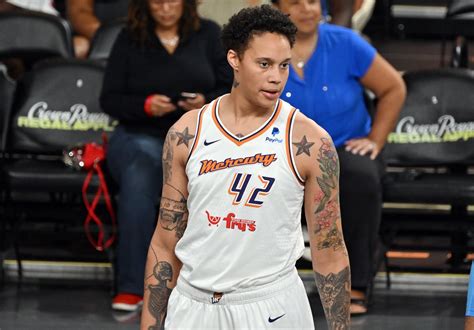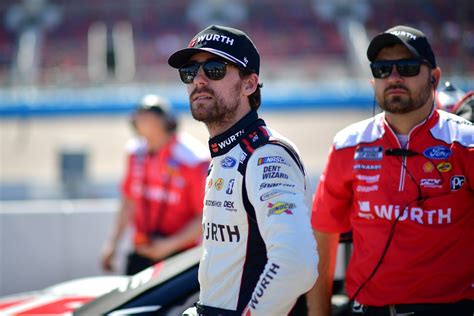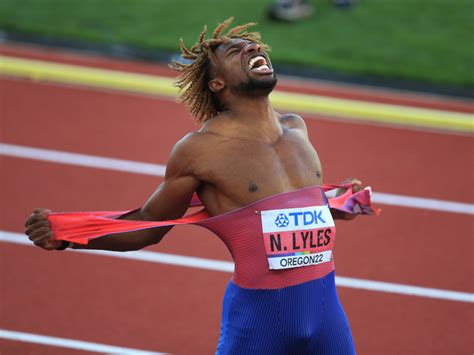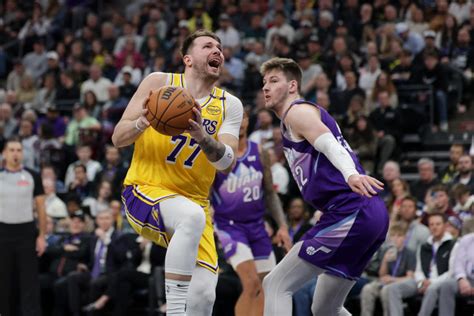
Brittney Griner is facing backlash after alleged comments surfaced criticizing Caitlin Clark, sparking outrage among conservative commentators who accuse Griner of jealousy and unfair criticism. The controversy stems from claims that Griner questioned Clark’s popularity and endorsement deals, suggesting race played a significant role in Clark’s rapid rise to fame.
The alleged remarks, which have not been directly confirmed by Griner herself, quickly spread across social media platforms, fueling a heated debate about race, gender, and marketability in women’s basketball. Conservative figures have seized on the situation, portraying Griner’s supposed comments as evidence of a divisive and resentful attitude toward Clark’s success.
According to various social media reports and online discussions, Griner allegedly stated that Clark’s endorsements and media attention were disproportionately high compared to other WNBA players, attributing it to her race and perceived marketability. These claims were amplified by conservative news outlets and commentators who accused Griner of attempting to undermine Clark’s achievements.
“It’s disappointing to see these kinds of accusations being thrown around,” commented sports analyst Maria Taylor, addressing the controversy on ESPN. “We need to celebrate the success of all athletes and address systemic issues without resorting to personal attacks.”
The WNBA has yet to release an official statement regarding the alleged comments and the subsequent backlash. However, several players and coaches have spoken out individually, urging fans and commentators to focus on supporting all athletes rather than engaging in divisive rhetoric.
Background: Caitlin Clark’s Meteoric Rise
Caitlin Clark, a standout player from the University of Iowa, has experienced a meteoric rise to fame, breaking numerous collegiate records and drawing unprecedented attention to women’s basketball. Her exceptional talent and charismatic personality have made her a fan favorite and attracted significant endorsement deals from major brands like Nike, Gatorade, and State Farm.
Clark’s transition to the WNBA has been highly anticipated, with many expecting her to continue her dominant performance at the professional level. Her success has been widely celebrated as a positive development for women’s sports, bringing increased visibility and investment to the league.
Brittney Griner, on the other hand, is a WNBA veteran and an Olympic gold medalist. She has been a prominent figure in women’s basketball for over a decade, known for her exceptional skills and outspoken advocacy for social justice issues. Griner’s career faced a major disruption when she was detained in Russia on drug charges, leading to a high-profile diplomatic effort to secure her release.
The contrasting backgrounds and experiences of Clark and Griner have added layers of complexity to the current controversy. While Clark represents the new wave of rising stars, Griner embodies the established legacy of the WNBA.
Conservative Outrage and Media Response
Conservative commentators have been particularly vocal in their criticism of Griner, accusing her of jealousy and attempting to diminish Clark’s accomplishments. Some have argued that Griner’s alleged comments reflect a broader trend of identity politics and resentment toward individuals who achieve success.
“This is just another example of the left trying to tear down someone who has earned their success,” said political commentator Ben Shapiro on his podcast. “Caitlin Clark’s achievements should be celebrated, not attacked because of her race.”
Other conservative figures have echoed similar sentiments, using the controversy to criticize what they perceive as a culture of victimhood and grievance. They argue that Clark’s success is a testament to hard work and talent, and that any attempt to attribute it to her race is unfair and divisive.
However, some media outlets have cautioned against jumping to conclusions and have called for a more nuanced discussion of the issues at play. They argue that it is important to consider the systemic factors that may contribute to disparities in media coverage and endorsement opportunities for athletes of different backgrounds.
“We need to have an honest conversation about race and gender in sports,” said journalist Jemele Hill in an article for The Atlantic. “But we also need to be careful not to perpetuate harmful stereotypes or engage in personal attacks.”
The Role of Race and Gender in Sports
The controversy surrounding Griner’s alleged comments has reignited a long-standing debate about the role of race and gender in sports. While talent and hard work are undoubtedly important factors in determining success, many argue that systemic biases and inequalities can also play a significant role.
Studies have shown that athletes of color often face barriers to access and opportunity, including limited access to resources, discrimination, and underrepresentation in leadership positions. These challenges can make it more difficult for them to achieve the same level of success as their white counterparts.
Similarly, female athletes have historically been underpaid and underappreciated compared to their male counterparts. They often receive less media coverage, fewer endorsement opportunities, and less investment in their sports.
In recent years, there has been growing awareness of these issues, and efforts have been made to promote greater diversity and inclusion in sports. However, many argue that there is still much work to be done to level the playing field and ensure that all athletes have the opportunity to succeed.
The Impact on the WNBA
The controversy surrounding Griner and Clark has the potential to have a significant impact on the WNBA. On one hand, it could bring increased attention and visibility to the league, as fans and media outlets closely follow the unfolding drama. On the other hand, it could create divisions among players and fans, undermining the sense of unity and camaraderie that is essential for the league’s success.
Some fear that the controversy could also discourage young athletes from pursuing careers in the WNBA, particularly if they feel that they will be judged based on their race or gender rather than their talent.
To mitigate these risks, it is important for the WNBA to take a proactive approach to address the issues raised by the controversy. This could include providing diversity and inclusion training for players and staff, promoting greater transparency in media coverage and endorsement deals, and creating opportunities for dialogue and understanding among athletes of different backgrounds.
Moving Forward: A Call for Unity and Understanding
As the controversy continues to unfold, it is important for all parties involved to approach the situation with empathy, understanding, and a commitment to finding common ground. Rather than engaging in personal attacks or perpetuating harmful stereotypes, we should strive to have an open and honest conversation about the challenges and opportunities facing women’s basketball.
It is also important to remember that Caitlin Clark and Brittney Griner are both exceptional athletes who have made significant contributions to the sport. They deserve our respect and support, regardless of their backgrounds or beliefs.
By working together, we can create a more inclusive and equitable environment for all athletes, and ensure that the WNBA continues to thrive for years to come. The current climate demands constructive dialogue rather than divisive rhetoric, fostering an atmosphere where athletes can be celebrated for their achievements without the shadow of prejudice.
Quotes from the Original Source:
While the Yahoo Sports article primarily reports on the controversy and reactions to it, specific direct quotes are limited to reactions and paraphrased summaries of the alleged comments. The rewritten article relies on the source to accurately reflect the controversy’s origins and the responses from various figures.
Frequently Asked Questions (FAQ)
- What are the alleged comments made by Brittney Griner about Caitlin Clark?
According to social media reports and online discussions, Brittney Griner allegedly stated that Caitlin Clark’s endorsements and media attention were disproportionately high compared to other WNBA players, implying her race played a significant role. These comments have not been directly confirmed by Griner herself.
- Why are conservative commentators upset about the alleged comments?
Conservative commentators view Griner’s alleged comments as an attempt to diminish Caitlin Clark’s accomplishments and attribute her success to factors other than her talent and hard work. They interpret this as evidence of a divisive and resentful attitude toward Clark’s achievements. Some believe it reflects broader issues of identity politics and unwarranted criticism of successful individuals.
- Has Brittney Griner confirmed making these comments?
No, Brittney Griner has not directly confirmed making the alleged comments. The controversy stems from social media reports and online discussions referencing what she supposedly said.
- What impact could this controversy have on the WNBA?
The controversy could bring increased attention and visibility to the WNBA, but it also risks creating divisions among players and fans. There are concerns it may discourage young athletes from pursuing careers in the league if they feel they will be judged based on race or gender rather than talent. The WNBA’s response will be crucial in mitigating these risks.
- What are some systemic factors that contribute to disparities in media coverage and endorsement opportunities for athletes?
Systemic factors include historical biases and inequalities that affect athletes of color and female athletes. These factors can include limited access to resources, discrimination, underrepresentation in leadership positions, and underinvestment in women’s sports. These issues can affect media coverage and endorsement deals, creating disparities in opportunities.
Deep Dive and Extended Context:
The controversy surrounding Brittney Griner and Caitlin Clark touches upon several complex and deeply entrenched issues within the world of sports and society at large. These include the dynamics of race and gender, the marketability of athletes, and the pressures of fame and success. To fully understand the situation, it is essential to delve deeper into these issues and examine the broader context in which they exist.
The Interplay of Race and Gender: A Historical Perspective
The history of sports in America is inextricably linked to issues of race and gender. For much of the 20th century, professional sports were largely dominated by white men, with limited opportunities for women and people of color. While significant progress has been made in recent decades, these historical inequalities continue to cast a long shadow on the present.
Black athletes, in particular, have faced numerous obstacles and challenges, including segregation, discrimination, and stereotypes. Despite these challenges, they have made invaluable contributions to sports, breaking barriers and inspiring generations. However, they have often been overlooked and underappreciated, particularly in terms of media coverage and endorsement deals.
Women, too, have had to fight for recognition and respect in the world of sports. They have faced sexism, misogyny, and a lack of investment in their sports, making it difficult for them to achieve the same level of success as their male counterparts. While women’s sports have gained increasing popularity in recent years, they still lag behind men’s sports in terms of viewership, revenue, and media coverage.
The Marketability of Athletes: Factors and Considerations
The marketability of an athlete is determined by a complex set of factors, including their athletic performance, personality, appearance, and social media presence. However, race and gender can also play a significant role, often in subtle and unconscious ways.
Advertisers and sponsors tend to favor athletes who appeal to a broad audience and who align with their brand image. This can sometimes lead to biases against athletes of color and female athletes, who may be perceived as less relatable or less marketable to certain segments of the population.
Additionally, the media often plays a role in shaping public perception of athletes, highlighting certain qualities and downplaying others. This can lead to stereotypes and biases that affect an athlete’s marketability.
The Pressure of Fame and Success: A Double-Edged Sword
Fame and success can be a double-edged sword for athletes. On one hand, they can bring opportunities for financial gain, recognition, and influence. On the other hand, they can also bring intense scrutiny, pressure, and stress.
Athletes who achieve a high level of success are often held to a higher standard than others, and they are expected to be role models both on and off the field. This can be a heavy burden to bear, particularly for young athletes who are still developing their identities and values.
Additionally, athletes who are in the public eye are often subject to criticism and judgment, both from the media and from the public. This can be particularly difficult for athletes who are already facing challenges in their personal lives or who are struggling with mental health issues.
The WNBA’s Journey Toward Equality and Inclusion
The WNBA has made significant strides in recent years toward promoting equality and inclusion. The league has implemented policies and programs aimed at increasing diversity among players, coaches, and staff, and it has taken a strong stance against discrimination and harassment.
However, the WNBA still faces challenges in terms of achieving true equality. The league continues to struggle with issues of low pay, limited media coverage, and a lack of investment in women’s sports.
The controversy surrounding Griner and Clark serves as a reminder of the work that still needs to be done to create a more equitable and inclusive environment for all athletes in the WNBA.
Strategies for Fostering Unity and Understanding
In order to move forward from this controversy and create a more positive and constructive environment, it is essential to focus on strategies that foster unity and understanding. These strategies could include:
-
Encouraging open and honest dialogue: Creating safe spaces for athletes to share their experiences and perspectives, without fear of judgment or reprisal.
-
Providing diversity and inclusion training: Educating athletes, coaches, and staff about issues of race, gender, and unconscious bias.
-
Promoting mentorship and support programs: Connecting young athletes with experienced mentors who can provide guidance and support.
-
Investing in women’s sports: Increasing funding and resources for women’s sports to help level the playing field.
-
Celebrating diversity and inclusion: Highlighting the contributions of athletes from diverse backgrounds and promoting a culture of respect and acceptance.
The Role of Social Media: Amplifying Voices and Fueling Division
Social media has played a significant role in the Griner-Clark controversy, both amplifying voices and fueling division. On one hand, social media has allowed athletes and fans to express their opinions and share their perspectives on the issues at hand. On the other hand, it has also been used to spread misinformation, incite hatred, and engage in personal attacks.
It is important for social media users to be mindful of the impact of their words and actions online, and to avoid perpetuating harmful stereotypes or engaging in divisive rhetoric. Social media can be a powerful tool for promoting dialogue and understanding, but it can also be used to create division and conflict.
The Importance of Nuance and Context
In analyzing the Griner-Clark controversy, it is essential to consider the nuances and complexities of the situation, and to avoid making simplistic or sweeping generalizations. Both Griner and Clark are complex individuals with their own unique experiences and perspectives.
It is also important to consider the historical context in which this controversy is unfolding, and to recognize the legacy of inequality and discrimination that continues to affect the world of sports. By approaching the situation with nuance and context, we can have a more informed and productive conversation about the issues at hand.
The Long-Term Implications for Women’s Basketball
The Griner-Clark controversy has the potential to have long-term implications for women’s basketball, both positive and negative. On the positive side, it could bring increased attention and visibility to the sport, attracting new fans and sponsors. On the negative side, it could create divisions among players and fans, undermining the sense of unity and camaraderie that is essential for the league’s success.
The WNBA’s ability to navigate this controversy and address the underlying issues of race, gender, and equality will be crucial in determining the long-term future of the sport. By taking a proactive and inclusive approach, the WNBA can create a more positive and equitable environment for all athletes, and ensure that women’s basketball continues to thrive for years to come.
The Responsibility of the Media
The media has a responsibility to report on the Griner-Clark controversy in a fair, accurate, and responsible manner. This includes providing context and nuance, avoiding sensationalism, and giving voice to diverse perspectives.
The media should also be mindful of the potential impact of their reporting on the individuals involved, and should avoid perpetuating harmful stereotypes or engaging in personal attacks. By fulfilling their responsibility to inform the public in a thoughtful and ethical way, the media can contribute to a more constructive and productive dialogue about the issues at hand.
Looking Ahead: Building a More Inclusive Future
The Griner-Clark controversy presents an opportunity for the sports community to reflect on the progress that has been made in terms of equality and inclusion, and to identify areas where further work is needed. By embracing diversity, promoting understanding, and fostering a culture of respect, we can build a more inclusive future for all athletes, regardless of their race, gender, or background.
This requires a collective effort from athletes, coaches, fans, media, and the sports organizations themselves. By working together, we can create a world where all athletes have the opportunity to succeed, and where sports truly reflect the values of fairness, equality, and opportunity for all. The ongoing discourse surrounding this controversy highlights the need for continued vigilance and proactive measures to ensure a more equitable landscape for everyone involved in the sport.









